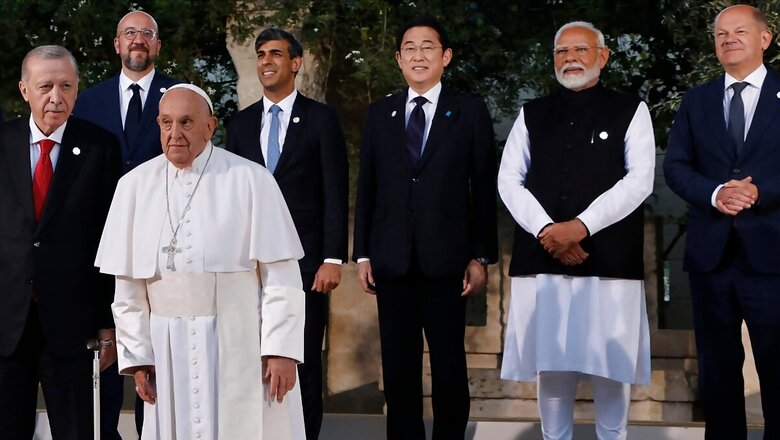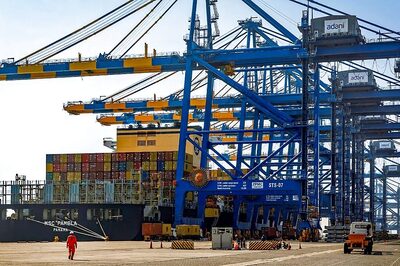
views
In the recent Indian elections, a new government has been formed under the leadership of Prime Minister Narendra Modi. He received congratulatory phone calls from world leaders, including US President Joe Biden and Russian President Vladimir Putin, who commended him for leading the National Democratic Alliance (NDA) to victory in the parliamentary election. Ukrainian President Volodymyr Zelenskyy also took to X (formerly Twitter) to congratulate Modi on the NDA’s victory.
French President Emmanuel Macron, German Chancellor Olaf Scholz, Japanese Prime Minister Fumio Kishida, Taiwanese President Tsai Ing-wen, and Italian Prime Minister Giorgia Meloni were among other leaders who congratulated Modi on X. Furthermore, several South Asian leaders attended Prime Minister Modi’s oath-taking ceremony, including heads of state from Maldives, Bangladesh, Nepal, Bhutan, and Sri Lanka. This demonstrates international recognition of the new government.
Following his re-election, Prime Minister Modi’s first foreign visit was to Italy for the G7 Summit, which concluded on June 15 in Borgo Egnazia, Apulia. This visit highlights the significance of international recognition for elected governments.
It is a fundamental principle of international law that every independent state has the right to be represented on the world stage by its government. This holds true for India with the newly elected NDA government. International law dictates that the recognised government must be one that effectively governs its people and maintains authority within its borders.
Although no international judicial or executive body definitively determines statehood, the recognition of foreign governments typically falls under the purview of individual countries’ executive branches. This recognition by the international community is not merely symbolic; it is a duty enshrined in international law, carrying significant weight in shaping international rights and duties for the recognised government.
The recognition of a government is a matter of international law, distinct from the recognition of a state. State recognition is a more complex undertaking than government recognition. Generally, there are two modes of recognition: de facto recognition and de jure recognition. A state or government may be granted either de facto or de jure recognition.
Granting de facto recognition indicates that the recognised state or government possesses the essential attributes of statehood and is fit to be a subject of international law. Conversely, de jure recognition is granted when the recognising state is satisfied with the effective control demonstrated by the government previously granted de facto recognition. Generally, de jure recognition follows de facto recognition. It is legal and permanent; once granted, it cannot be withdrawn.
The international recognition of Prime Minister Narendra Modi’s government following India’s recent parliamentary elections underscores the importance of such acknowledgements on the world stage. The congratulatory messages from world leaders and Modi’s participation in the G7 Summit exemplify the practical implications of international law concerning government recognition.
This case study highlights the significance of government recognition and the legal frameworks underpinning these diplomatic practices.
Abhinav Mehrotra is Assistant Professor and Dr Biswanath Gupta is Associate Professor at OP Jindal Global University. Views expressed in the above piece are personal and solely those of the authors. They do not necessarily reflect News18’s views.




















Comments
0 comment